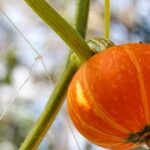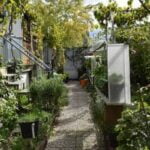Is newspaper a good mulch for vegetable gardens? Mulching is an essential practice in vegetable gardening as it helps to retain moisture, suppress weeds, and regulate soil temperature. In this article, we will explore the use of newspaper as mulch in vegetable gardens, its benefits, potential drawbacks, and how to effectively use it.
Mulch plays a crucial role in maintaining soil health and promoting optimal growing conditions for vegetable plants. By acting as a protective layer over the soil, mulch helps to conserve moisture, prevent erosion, and improve soil structure. Additionally, it can also regulate soil temperature and inhibit weed growth. The type of mulch used can impact the overall health and productivity of the garden.
Newspaper is often considered an effective and economical option for mulching in vegetable gardens. It is readily available, biodegradable, and can be easily layered over the soil. When used correctly, newspaper mulch can provide several benefits such as weed suppression, moisture retention, and improved soil structure.
In the following sections of this article, we will delve into the specific benefits of using newspaper as mulch in vegetable gardens, how to prepare newspaper for use as mulch, types of vegetable plants that thrive with this type of mulch, potential drawbacks to consider when using newspaper as mulch, and tips for effectively utilizing newspaper mulch in vegetable gardens. We will also explore alternatives to newspaper mulch for those seeking alternative options for their gardening needs.
Benefits of Using Newspaper as Mulch in Vegetable Gardens
Mulch is a layer of material applied to the surface of the soil in vegetable gardens, and it serves multiple purposes. It helps retain moisture, suppresses weed growth, regulates soil temperature, and adds organic matter to the soil as it decomposes. Using newspaper as mulch in vegetable gardens offers several benefits that make it a popular choice among gardeners.
Benefits of using newspaper as mulch in vegetable gardens include:
- Weed suppression: Newspaper effectively prevents weeds from growing by blocking out sunlight and preventing weed seeds from germinating.
- Moisture retention: The paper retains moisture in the soil, reducing water evaporation and helping to keep the soil consistently moist for vegetable plants.
- Soil insulation: It helps regulate soil temperature by keeping the soil cooler in hot weather and warmer during colder months.
To properly prepare newspaper as mulch for vegetable gardens, follow these steps:
- Lay down sheets of newspaper: Lay multiple sheets of newspaper over the soil around your vegetable plants, overlapping them to cover the entire area.
- Wet the newspaper: Lightly dampen the newspaper with water to help it conform to the shape of the soil and prevent it from blowing away.
- Add a layer of organic material: Cover the wet newspaper with a layer of organic material like straw or grass clippings to hold it in place and provide additional benefits for your vegetable plants.
Using newspaper mulch can benefit a variety of vegetable plants including tomatoes, peppers, cucumbers, and squash. These plants thrive with newspaper mulch due to its ability to retain moisture and suppress competing weeds.
However, there are potential drawbacks to using newspaper as mulch in vegetable gardens. For example, some types of ink used in newspapers may contain harmful chemicals that can leach into the soil over time. To mitigate this risk, consider using black-and-white newsprint or soy-based ink newspapers. Additionally, excessive layers of newspaper may restrict air and water movement into the soil, so be mindful not to use too much paper.
In summary, while there are important considerations when using newspaper as mulch for vegetable gardens, implementing proper techniques can lead to successful results. Ultimately, choosing whether or not to use newspaper as mulch will depend on individual preferences and specific gardening needs.
How to Properly Prepare Newspaper as Mulch for Vegetable Gardens
Newspaper mulch can be a great option for vegetable gardens, providing a range of benefits such as weed suppression, moisture retention, and soil insulation. However, it is important to properly prepare newspaper before using it as mulch to ensure its effectiveness in your garden.
Here are some steps to properly prepare newspaper as mulch for vegetable gardens:
1. Shred the newspaper: Start by shredding the newspaper into small strips or pieces. This will help the newspaper break down more easily and integrate with the soil.
2. Soak the newspaper: Once shredded, soak the newspaper in water for a few minutes. This will make it more pliable and easier to mold around plants in your vegetable garden.
3. Layer the newspaper: After soaking, layer the newspaper around your vegetable plants, making sure to leave space around the stem of each plant to prevent rotting.
4. Add a protective layer: To prevent the newspaper from blowing away or drying out too quickly, add a layer of organic materials such as straw or wood chips on top of the newspaper.
Using these steps to prepare newspaper mulch for your vegetable garden can help you maximize its benefits and ensure that it effectively contributes to the health and growth of your plants.
Some types of vegetable plants that thrive with newspaper mulch include:
By following these preparation steps and choosing suitable vegetable plants, you can make the most out of using newspaper as mulch in your vegetable garden.
Types of Vegetable Plants That Thrive With Newspaper Mulch
Using newspaper as mulch in your vegetable garden can provide numerous benefits for your plants and soil. But not all vegetables may respond the same way to this type of mulch. Understanding which types of vegetable plants thrive with newspaper mulch is essential for successful gardening.
Warm-Season Vegetables
Warm-season vegetables, such as tomatoes, peppers, and squash, thrive well with newspaper mulch. These types of vegetables benefit from the warm and moist environment that newspaper mulch provides. The heat retention properties of newspaper can help these plants grow better and produce higher yields.
Root Vegetables
Root vegetables like carrots, radishes, and potatoes also do well with newspaper mulch. The thickness of the newspaper helps protect the delicate roots from sunlight while also keeping the soil moist, which is crucial for the proper development of these underground crops.
Lettuce and Leafy Greens
Leafy greens are known to perform exceptionally well when grown with a layer of newspaper mulch. The moisture retention provided by the newspaper helps to keep the soil consistently damp, creating an ideal growing environment for these types of vegetables.
With proper preparation and application, using newspaper as mulch can significantly benefit a variety of vegetable plants in your garden. As you continue to explore this method, it’s important to pay attention to how each type of vegetable responds to this organic material.
Potential Drawbacks of Using Newspaper as Mulch in Vegetable Gardens
Newspaper mulch can be a cost-effective and eco-friendly option for vegetable gardens, but there are some potential drawbacks to consider before using it. It is important to weigh these drawbacks against the benefits of using newspaper mulch to determine if it is the right choice for your garden.
Carbon-to-Nitrogen Ratio
One potential drawback of using newspaper as mulch in vegetable gardens is its high carbon-to-nitrogen ratio. As the newspaper decomposes, it can temporarily tie up nitrogen in the soil, making it less available to the plants. This can lead to nitrogen deficiency in the vegetables, resulting in stunted growth and yellowing of leaves. To mitigate this issue, gardeners can add additional nitrogen-rich organic matter such as compost or manure to the soil before applying newspaper mulch.
Weed Control
While newspaper mulch can effectively suppress weeds, it may not completely eliminate them. Some persistent weeds may still find their way through the layers of newspaper, especially if the mulch is not applied thickly enough. Additionally, if the newspaper mulch breaks down too quickly, it may create an environment conducive to weed growth. Regular monitoring and reapplication of the mulch may be necessary to maintain effective weed control.
Potential Contaminants
Another consideration when using newspaper as mulch in vegetable gardens is the presence of ink and potential contaminants from printing processes. While many newspapers now use soy-based or vegetable-based ink that is considered safe for organic gardening, there is still a possibility of contamination with heavy metals or other harmful substances. Gardeners should exercise caution when sourcing newspapers for use as mulch and consider using alternatives if they have concerns about potential contaminants.
Tips for Effectively Using Newspaper Mulch in Vegetable Gardens
Newspaper mulch can be a great addition to vegetable gardens, providing numerous benefits such as weed suppression, moisture retention, and soil improvement. To effectively use newspaper as mulch in your vegetable garden, it is important to follow some tips and best practices.
Firstly, it is recommended to lay down a layer of newspaper mulch that is at least 5-10 sheets thick. This will provide ample coverage and help in blocking out sunlight, preventing weed growth. It is also important to ensure that the newspaper mulch is layered evenly and extends around the base of the vegetable plants.
In addition, it is essential to properly prepare the newspaper before using it as mulch. Avoid using shiny or glossy newspapers, as these may contain chemicals that could be harmful to your vegetable plants. It is best to use black and white newsprint newspapers for mulching purposes.
Furthermore, it is advisable to water the soil thoroughly before applying the newspaper mulch. This will help in holding the newspaper in place and promote decomposition over time. Regularly check the newspaper mulch for any signs of water resistance or compaction, and make sure to replenish it as needed.
| Tip | Description |
|---|---|
| Layer Thickness | Ensure a 5-10 sheet thick layer for adequate coverage |
| Newspaper Preparation | Avoid glossy newspapers and opt for black and white newsprint |
| Pre-Mulching Watering | Water soil thoroughly before applying newspaper mulch |
By following these tips, you can make the most of newspaper mulch in your vegetable garden, reaping its benefits while minimizing potential drawbacks.
Alternatives to Newspaper Mulch for Vegetable Gardens
When considering mulching options for vegetable gardens, newspaper is not the only choice available. There are several alternatives to newspaper mulch that can provide similar benefits and even some additional advantages. One popular alternative is straw or hay mulch, which is widely used in organic gardening. Straw and hay are excellent at retaining moisture, suppressing weeds, and adding organic matter to the soil as they break down.
Another alternative to newspaper mulch is wood chips or bark mulch. These types of mulch are more decorative than newspaper and can add an attractive aesthetic to the garden. Wood chips and bark also decompose slowly, providing long-lasting weed suppression and moisture retention for vegetable plants.
For those looking for a more natural option, leaves can be used as mulch in vegetable gardens. Fallen leaves from deciduous trees are a free and abundant resource that can be easily gathered and spread over garden beds. Leaves contribute to soil health as they decompose, providing nutrients for vegetable plants.
| Alternative Mulch | Advantages |
|---|---|
| Straw or Hay | Retains moisture, suppresses weeds, adds organic matter to soil |
| Wood Chips or Bark | Decorative, long-lasting weed suppression, moisture retention |
| Leaves | Natural, free resource, provides nutrients for vegetable plants |
Conclusion
In conclusion, using newspaper as mulch in vegetable gardens has its pros and cons. On the positive side, newspaper mulch is an effective way to suppress weeds, retain moisture, and regulate soil temperature in vegetable gardens. It is also readily available, inexpensive, and environmentally friendly as it recycles old newspapers. Additionally, it can be easily prepared and laid out in the garden beds for maximum benefit.
However, there are potential drawbacks to consider when using newspaper as mulch in vegetable gardens. One of the main concerns is the presence of ink and chemicals in some newspapers which may contaminate the soil over time. Another drawback is that newspaper mulch may not break down as quickly as other organic mulches, potentially creating a barrier that prevents water and nutrients from reaching the soil.
Despite these drawbacks, with proper preparation and careful selection of newspapers without harmful ink or chemicals, newspaper can still be a good mulch for vegetable gardens. By using layers of newspaper along with other organic materials such as compost or grass clippings, you can mitigate some of the potential drawbacks while still benefiting from its weed suppression and moisture retention properties.
Frequently Asked Questions
Can I Use Newspaper as Mulch in My Vegetable Garden?
Newspaper can be used as mulch in a vegetable garden. It helps suppress weeds, retain moisture, and regulate soil temperature. However, it’s best to use it in combination with other organic mulches for better results.
Is Newspaper a Good Mulch for Tomatoes?
Yes, newspaper can be a good mulch for tomatoes. It provides similar benefits as other mulches, such as moisture retention and weed suppression. Just make sure to wet the newspaper before laying it down to prevent it from blowing away.
What Is the Best Mulch to Use in a Vegetable Garden?
The best mulch to use in a vegetable garden depends on various factors such as climate, soil type, and the specific vegetables being grown. Organic options like straw, grass clippings, or shredded leaves are popular choices due to their ability to improve soil health and provide nutrients as they decompose.
Ultimately, the best mulch is one that suits your garden’s needs and your gardening practices.

If you’re looking to get into vegetable gardening, or are just looking for some tips on how to make your current garden better, then you’ve come to the right place! My name is Ethel and I have been gardening for years. In this blog, I’m going to share with you some of my best tips on how to create a successful vegetable garden.





